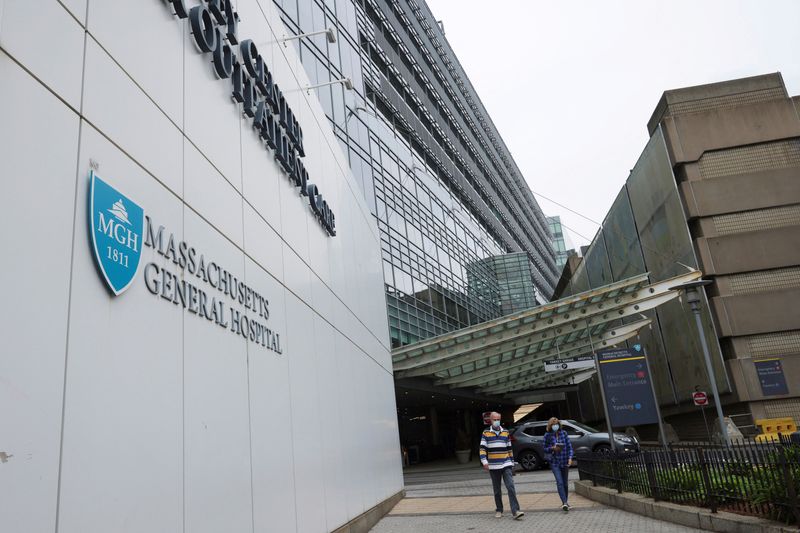Kingsley Hamilton drove his vintage double decker “stop the Ulez” bus in circles around Yorkshire Grey roundabout in south-east London last Saturday as part of a protest against the capital’s vehicle emissions charge.
“You’ll know me from being arrested for taking down Ulez cameras,” Hamilton said, referring to a case last year where he was charged with breaking a traffic camera.
He had been stopped by police in the middle of the night while carrying gloves, tools and anti-Ulez stickers not far from a disabled camera. The charges were later dropped.
The incident has not dimmed his verve for protest. “The argument that [Ulez] is keeping the dirty air out of London is nonsense,” Hamilton said, referring to the recent expansion of the ultra-low emission zone scheme, which levies a fee on vehicles that do not meet environmental standards.
The 45-year-old is part of a small but noisy protest movement that highlights how car use has become a battleground for the Conservatives and Labour in elections this year.
London’s Labour mayor Sadiq Khan is seeking a third term on May 2 as voters across England and Wales go to the polls in local and mayoral elections. Though he comfortably leads his Conservative challenger Susan Hall in opinion polls, Khan’s clampdown on vehicle emissions is a political sore.

Ulez was first introduced by Boris Johnson when he was mayor, and has been expanded twice by Khan, most recently to encompass all of Greater London in August last year.
Ahead of the expansion, Labour narrowly failed to win the suburban London constituency of Uxbridge and South Ruislip from the Tories in a by-election, a result blamed on local anger at the Ulez scheme.
Labour leader Sir Keir Starmer swiftly distanced himself from the policy. Prime Minister Rishi Sunak in turn put pro-motorist policies at the heart of the Conservatives’ uphill battle to cling on to Downing Street. In December, Manchester’s Labour mayor Andy Burnham dropped similar plans for a clean air zone.
Opposition to Ulez in London has been more than just political. Activists have taken to covering cameras with spray foam or wooden “bat boxes” — artificial roosts used to attract the protected species.
Social media posts have also shown self-described “bladerunners” using power tools to cut down cameras in areas such as Hillingdon and Bromley, two suburban London boroughs.
“The left has always had problems grappling with the concerns of people living in the outer boroughs,” said Paolo Gerbaudo, visiting fellow at the Oxford Internet Institute, who focuses on social movements and online activism.
Gerbaudo said the Ulez protesters represented a “new right-wing populist coalition” made up of middle-class suburbanites, working-class commuters and those opposed to green transition policies.

The mayor’s office most recent study shows that levels of toxic nitrogen dioxide in London were reduced by nearly 50 per cent between 2016 and 2023.
A nine-year-old girl who died in 2013 was ruled by a coroner to be the UK’s first reported fatality caused by air pollution. Ella Kissi-Debrah, who had severe asthma, lived near the South Circular road not far from Yorkshire Grey roundabout where the demonstration was held.
A spokesperson for Khan said: “The Ulez has proven to be highly effective and is helping to tackle toxic air pollution and protect Londoners’ health.”
Khan, who has emphasised the need to reduce road emissions to reach ambitious net zero targets, said 95 per cent of cars in London were now Ulez compliant.
“London is considered to be the standout, along with Paris, in terms of reducing car use and reducing air pollution,” said Jon Tabbush, director of research at the Centre for London.
But still, vocal opposition — and the Tory tactic of using motoring policies as a dividing line — was having an impact on Labour policymaking, Tabbush noted.
Conservative campaign literature has rallied pro-motorist voters by raising concerns about a pay-per-mile levy, a proposed charging system that would penalise drivers based on the distance they drive.
Khan had previously said his office was exploring the possibility of a mileage charge, but has since backed away from the policy.
In London, Hall hopes her pledge to scrap the Ulez expansion, emphasised in her manifesto, will help her claw back what some pollsters estimate is a 20-point deficit to Khan.
Hall said the scheme had done little to improve air quality. “[The] expansion has been a disaster, pushing families into debt and forcing small businesses to shut down,” she said.
A YouGov survey from mid-April found that Londoners were divided over Ulez, with 55 per cent of inner city residents supportive of an expansion but 53 per cent of those in outer London opposed.
Changes in the voting rules, including a voter ID requirement, could make the race closer on the day, though even supporters of Hall’s policies are not necessarily enthused by her candidacy.
“I don’t think Susan Hall is the best candidate they could have put forward,” said Claire Turner, who runs an anti-Ulez Facebook group and was a co-organiser of last Saturday’s protest where several dozen older demonstrators blasted music and waved St George’s cross flags.
Turner said a lack of public transport links in the outer boroughs was part of why she opposed the Ulez expansion. Regardless, her message was clear: “Stop picking on the motorists”.
FT subscriber event

Join a subscriber webinar with leading FT journalists on May 8, 1-2pm UK (GMT+1)
Register at ft.com/ukwebinar












































